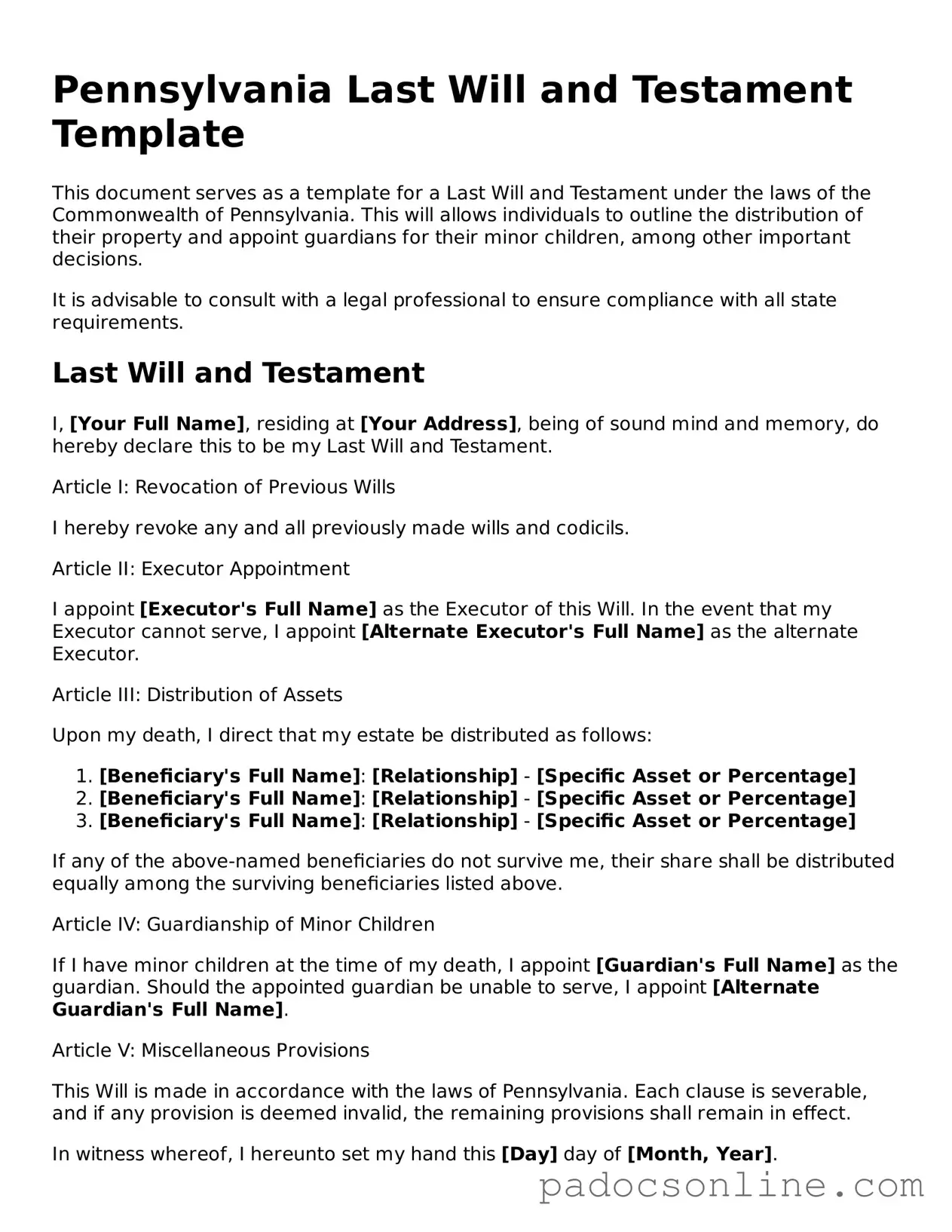Filling out a Last Will and Testament form in Pennsylvania is a critical step in ensuring that one's wishes are honored after death. However, many individuals make mistakes that can lead to confusion or disputes. One common error is failing to clearly identify the beneficiaries. It is essential to use full names and, if possible, include relationships to avoid ambiguity.
Another mistake involves not signing the document properly. In Pennsylvania, a will must be signed by the testator, the person making the will. If the signature is missing or improperly placed, the will may be deemed invalid. Additionally, witnesses play a crucial role in the validity of a will. Not having at least two witnesses present during the signing can invalidate the document.
People often overlook the importance of updating their wills. Life changes such as marriage, divorce, or the birth of a child can affect how assets should be distributed. Failing to revise the will after such significant events can lead to unintended consequences.
Another frequent error is not being specific about asset distribution. Vague language can create confusion and lead to disputes among beneficiaries. Clearly detailing who receives what ensures that the testator's intentions are understood and respected.
Some individuals mistakenly believe that oral wills are acceptable. In Pennsylvania, a will must be in writing to be valid. Relying on verbal agreements can lead to complications and may not be enforceable in court.
Moreover, people sometimes neglect to consider the appointment of an executor. This individual is responsible for managing the estate and ensuring that the will is executed according to the testator's wishes. Failing to name an executor can lead to delays and complications in the probate process.
Lastly, individuals may not seek legal advice when necessary. While it is possible to create a will without an attorney, consulting with a legal professional can help avoid mistakes. An attorney can provide guidance tailored to specific situations, ensuring that the will meets all legal requirements and accurately reflects the testator's wishes.
